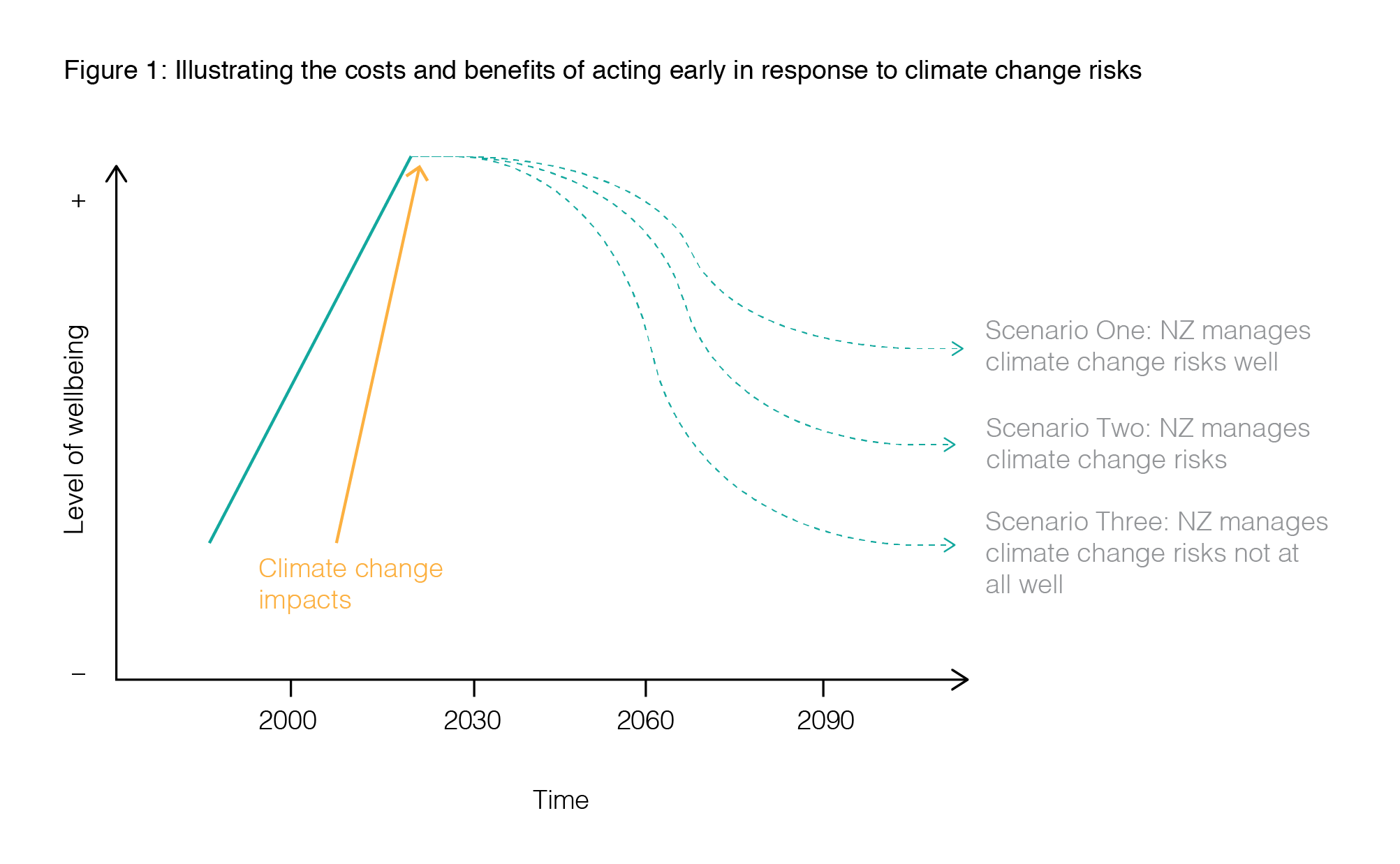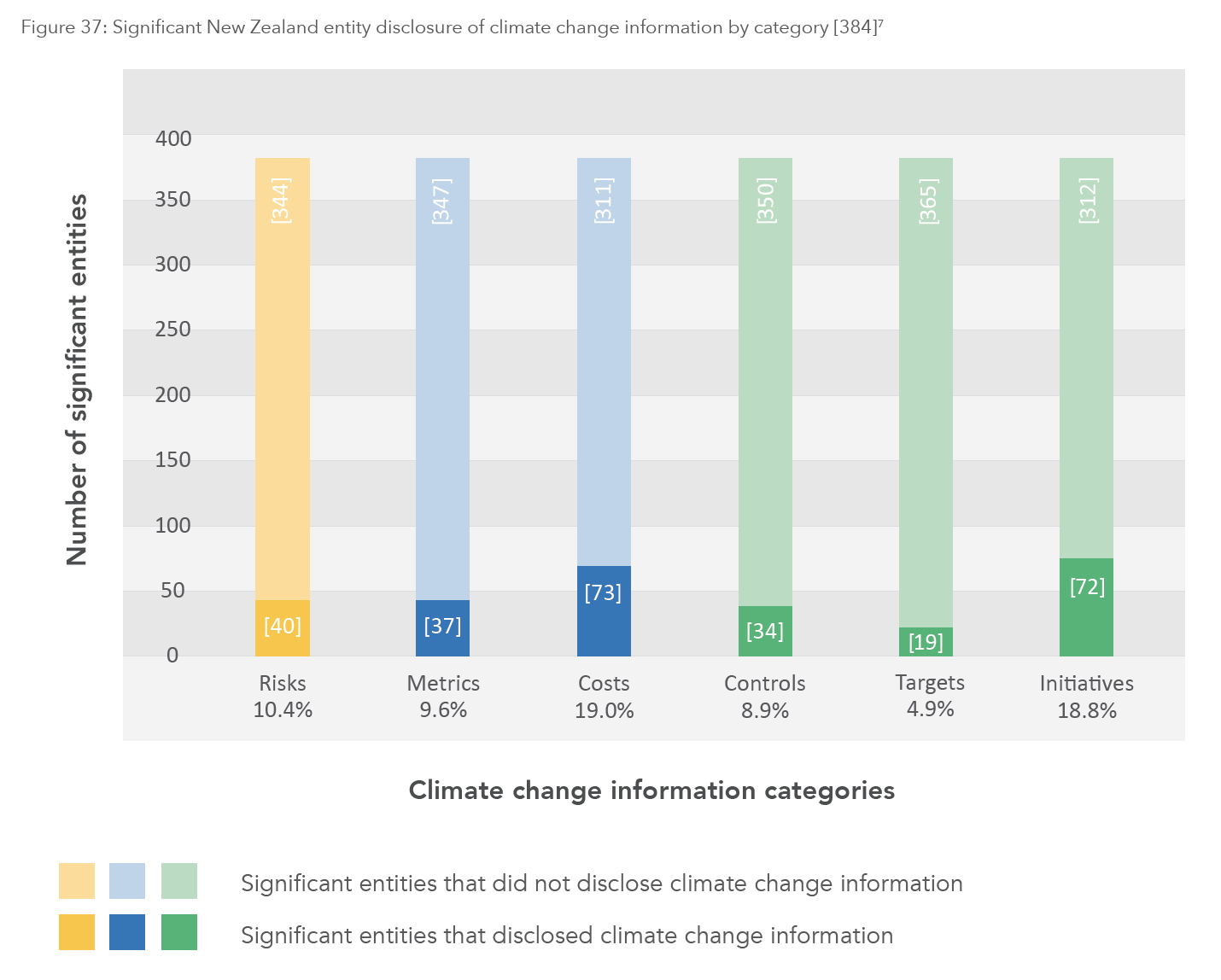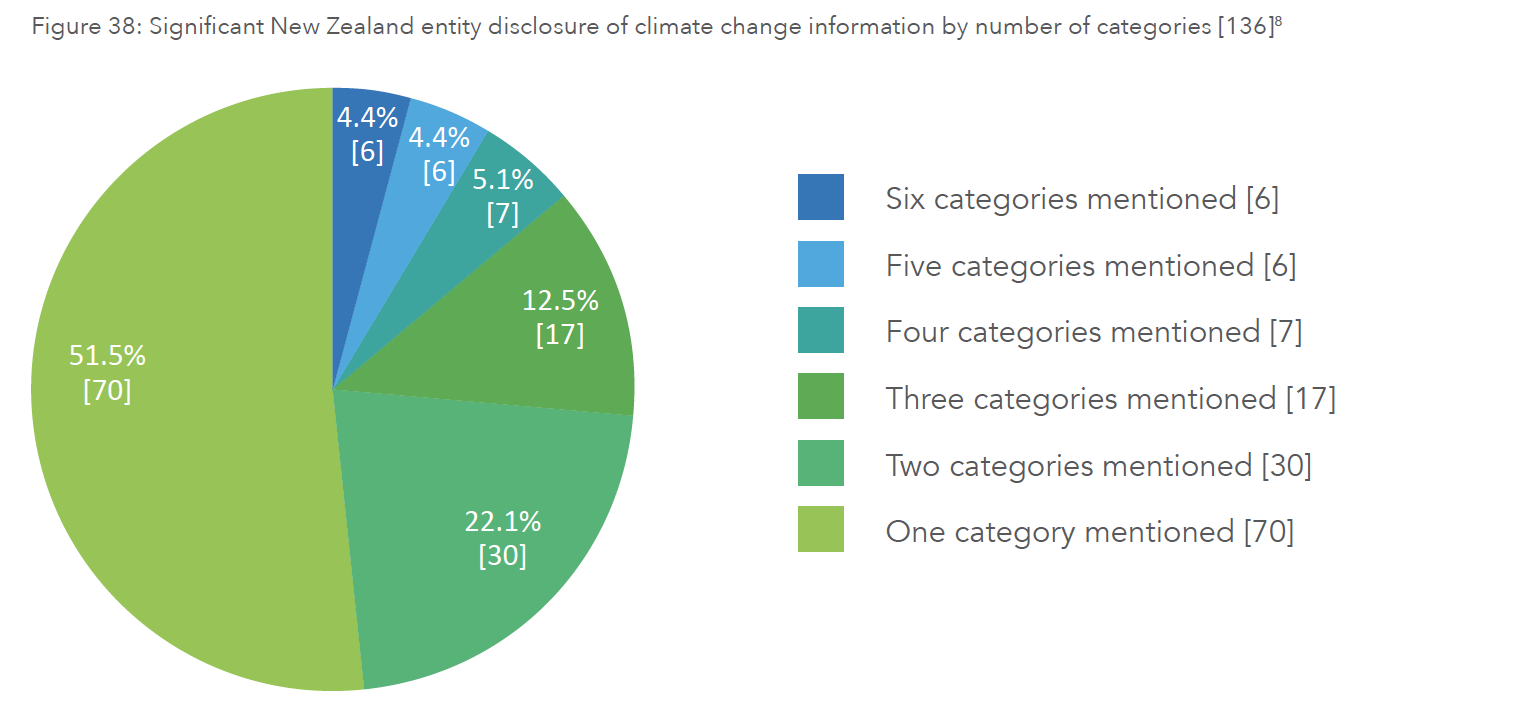New McGuinness Institute research demonstrates the low standard of climate change reporting by New Zealand’s major organisations. Working Paper 2018/03 – Analysis of Climate Change Reporting in the Public and Private Sectors, published here, found that information, when provided, often lacked detail and was ad hoc.
Three key questions underpin the working paper:
- What information does the organisation disclose about the types of climate change risks it faces?
- What information does the organisation disclose about its emissions?
- What information does the organisation disclose about its strategy to reduce emissions and mitigate the risks of climate change? This could be in terms of the organisation, country or world.
A total of 384 organisations (the 2017 Deloitte Top 200 companies, government departments, Crown agents and Crown entities, state-owned enterprises and local authorities) were analysed for how they reported climate change information (categories being risks, metrics, costs, controls, targets and initiatives) in their 2017 annual reports (or financial statements).
Climate change initiatives were the most frequently disclosed information, while emission targets were the least disclosed (disclosed by only 19 organisations), as shown in Figure 37 above. We were surprised by this as we expected risk to be the most frequently disclosed category of information.
Local authorities were found to be the most proficient climate change information disclosers, with almost 70% publishing 2017 annual reports disclosing one or more of the three key terms (emission, carbon and climate). However, the overall level of disclosure was low and many disclosures lacked detail and specificity. Only two of New Zealand’s 78 local authorities disclosed information in all six categories (2.56%), while two of the 31 government departments and 65 Crown agents and Crown entities (6.45% and 3.08% respectively) also disclosed all six climate change information categories. No Deloitte Top 200 companies or state-owned enterprises disclosed information in all six categories. Figure 38 below demonstrates the information disclosures of all the organisations combined.
This research emphasises the truth of the adage that ‘we manage what we measure’. We suspect that if government prioritised risk reporting, increased disclosures in the other five categories would follow.
Five general observations were drawn from the research:
- Annual reports were not easily accessed in the public arena
- Climate change information was not easy to find in the annual report or the financial statements, and disclosure requirements between the two types of document remain unclear.
- Many annual reports or financial statements only disclosed a small amount of climate change information
- Even the small amount of climate change information found was generally ad hoc.
- Climate change information was mostly disclosed in annual reports rather than financial statements, meaning it was not audited
Four observations specific to the Deloitte Top 200 companies were made:
- The electricity, gas, water and waste service industry disclosed the most climate change information.
- More comprehensive reporters tended to be dependent on the environment.
- Apart from emission costs, NZSX-listed companies tended to disclose more climate change information than non-listed companies.
- Disclosure of controls and targets by NZSX-listed companies appears to have decreased from 2016 to 2017.
Three observations on the broader implications for New Zealand were:
- Climate change scenarios will need to be local and frequently updated and agreed upon.
- Costs and metrics will need to be auditable.
- Clear goals are necessary to drive strategy.
Climate change has the potential to disrupt investments, capital markets, infrastructure investments, council initiatives and government strategy. New Zealand needs to apply a rigorous, timely and precautionary approach to climate change, and reporting will be a key tool for improving commercial and public policy decision-making, particularly in relation to the future wellbeing of New Zealanders (see diagram below).

About Project ReportingNZ
Working Paper 2018/03 – Analysis of Climate Change Reporting in the Public and Private Sectors is part of the McGuinness Institute’s two years of research in Project ReportingNZ, a policy project that aims to contribute to a discussion on how to build an informed society.


